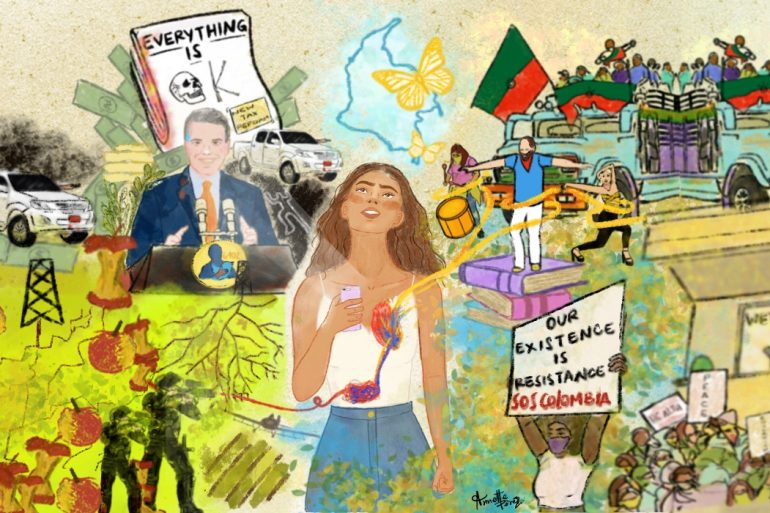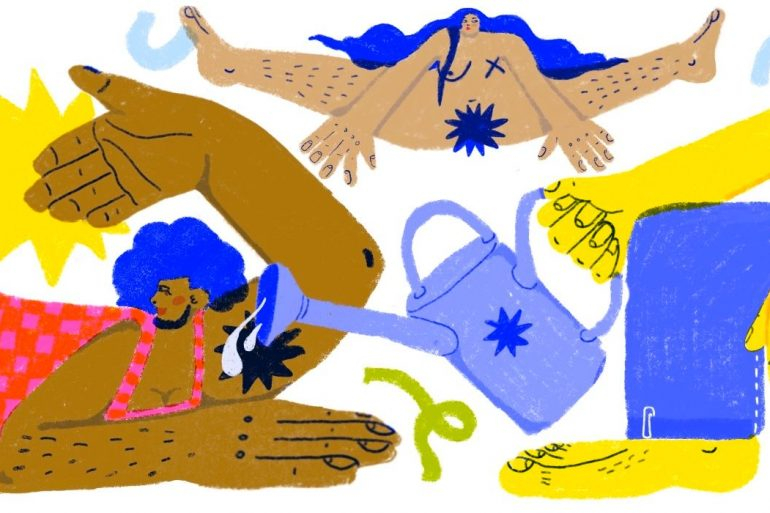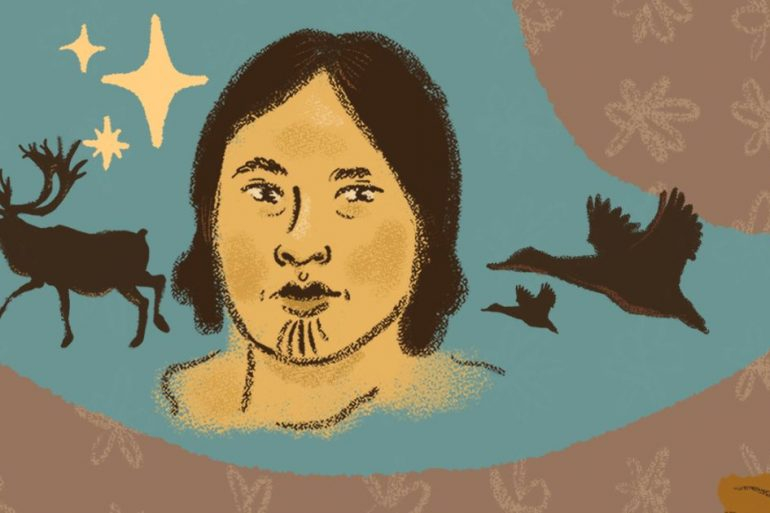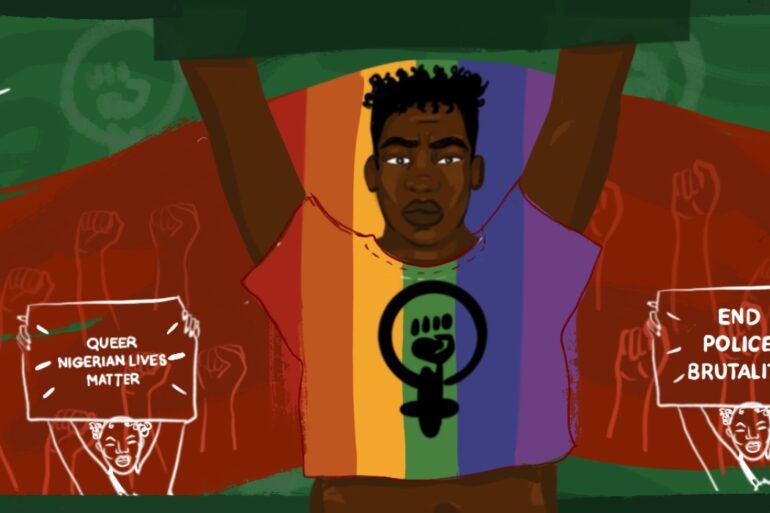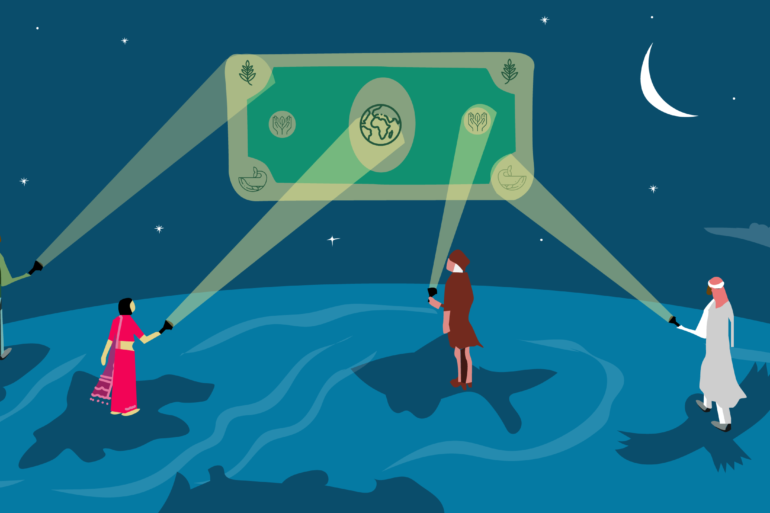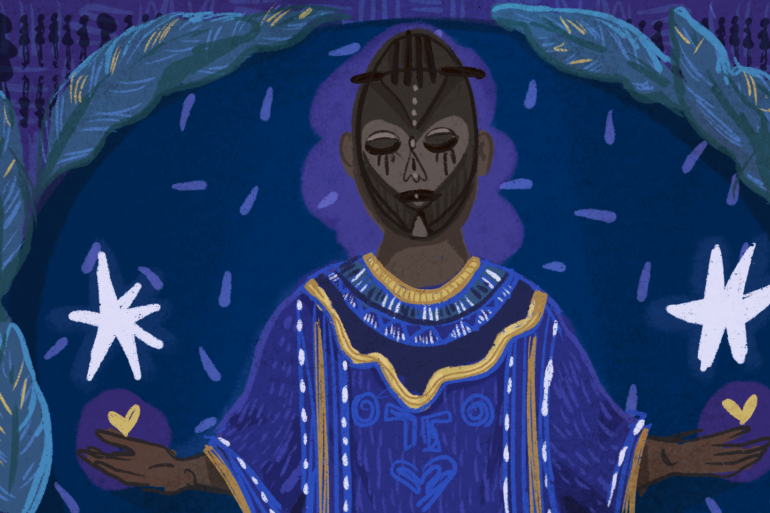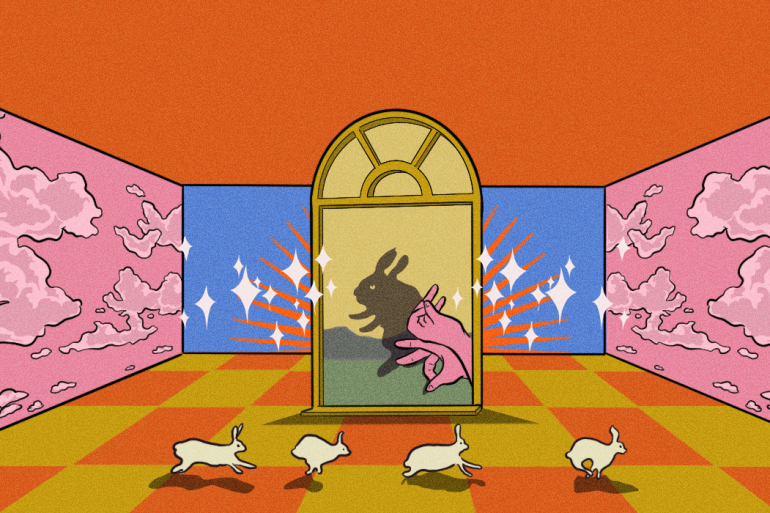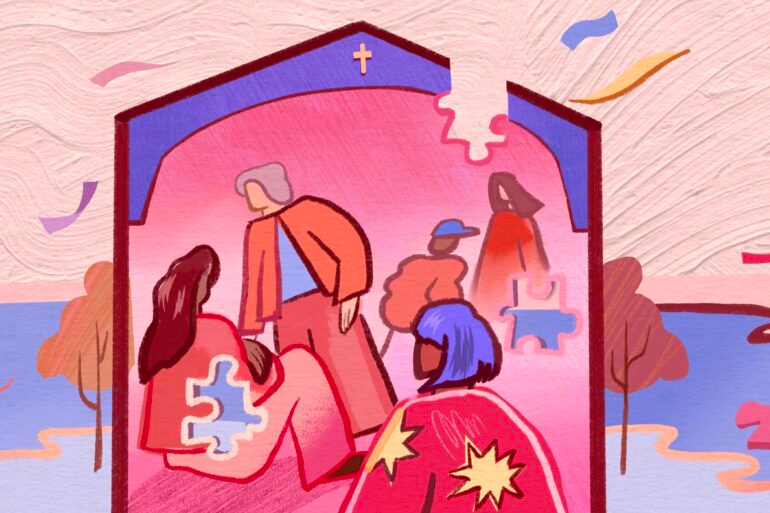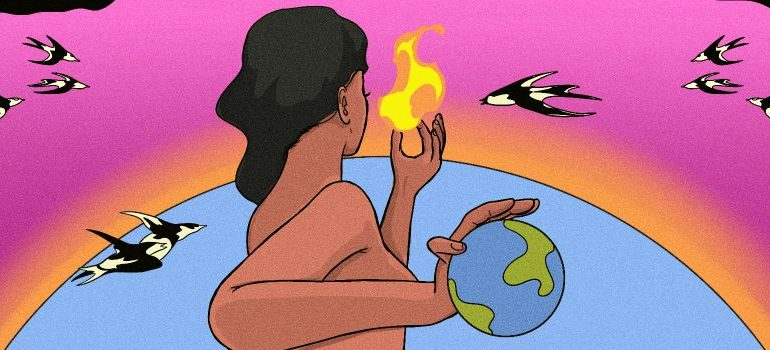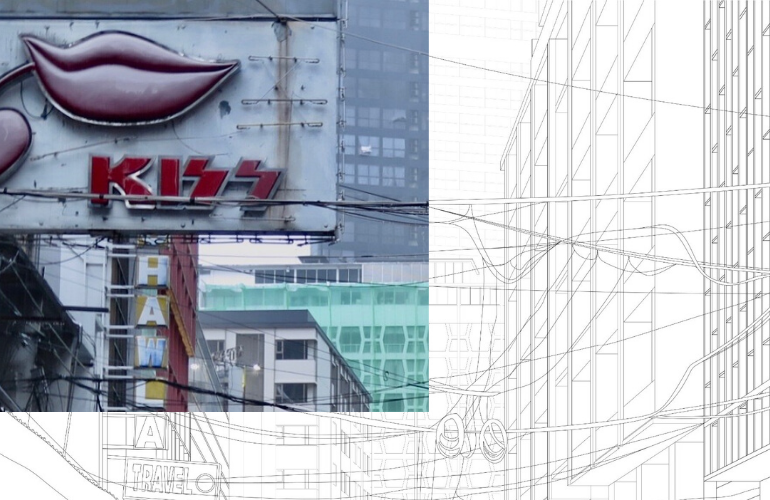In a modern world, we are exposed to so many different people and so much content that we forget to stop and appreciate what is deemed mundane – particularly the stories those around us have to tell. I began photography just over a year ago, from a necessity to capture the experiences and stories around me. I found that visual arts have the potential to speak louder than words. Telling the stories which often go untold is imperative to me – it is what drives me to create.
Growing up, I assumed motherhood and womanhood to be synonymous; being a woman equates to being a mother, and being a mother equates to being woman. From a young age, becoming a mother was something I aspired to – more so than a successful career or financial security. I was quite literally pushing plastic babies in prams before I knew how babies were made. The difference with men is that they can separate their manhood from their fatherhood; whereas once a woman becomes a mother, motherhood becomes the forefront of their identity.
Every woman I interviewed had a different definition of womanhood and a different experience of motherhood; shaped by age, culture, and experience. This is what makes motherhood so beautiful – it evolves, challenges and empowers, but above all, it is the most beautiful aspect of the lived experience. This project is not just in conversation with women and mothers, but in celebration of them.
– Ilayda
Nazli
My name is Nazli Kiralp. I’m 38 and I’m Turkish.
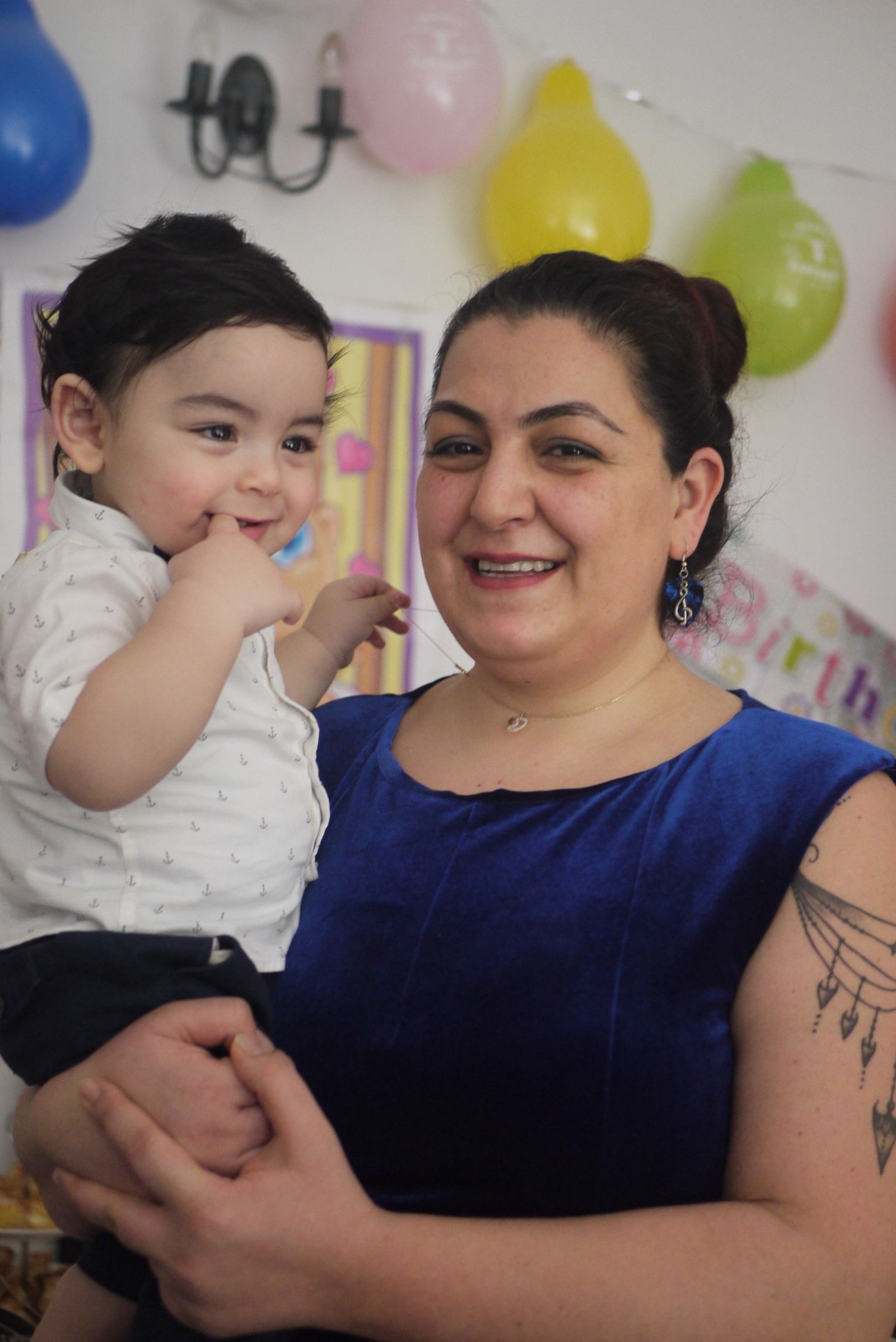
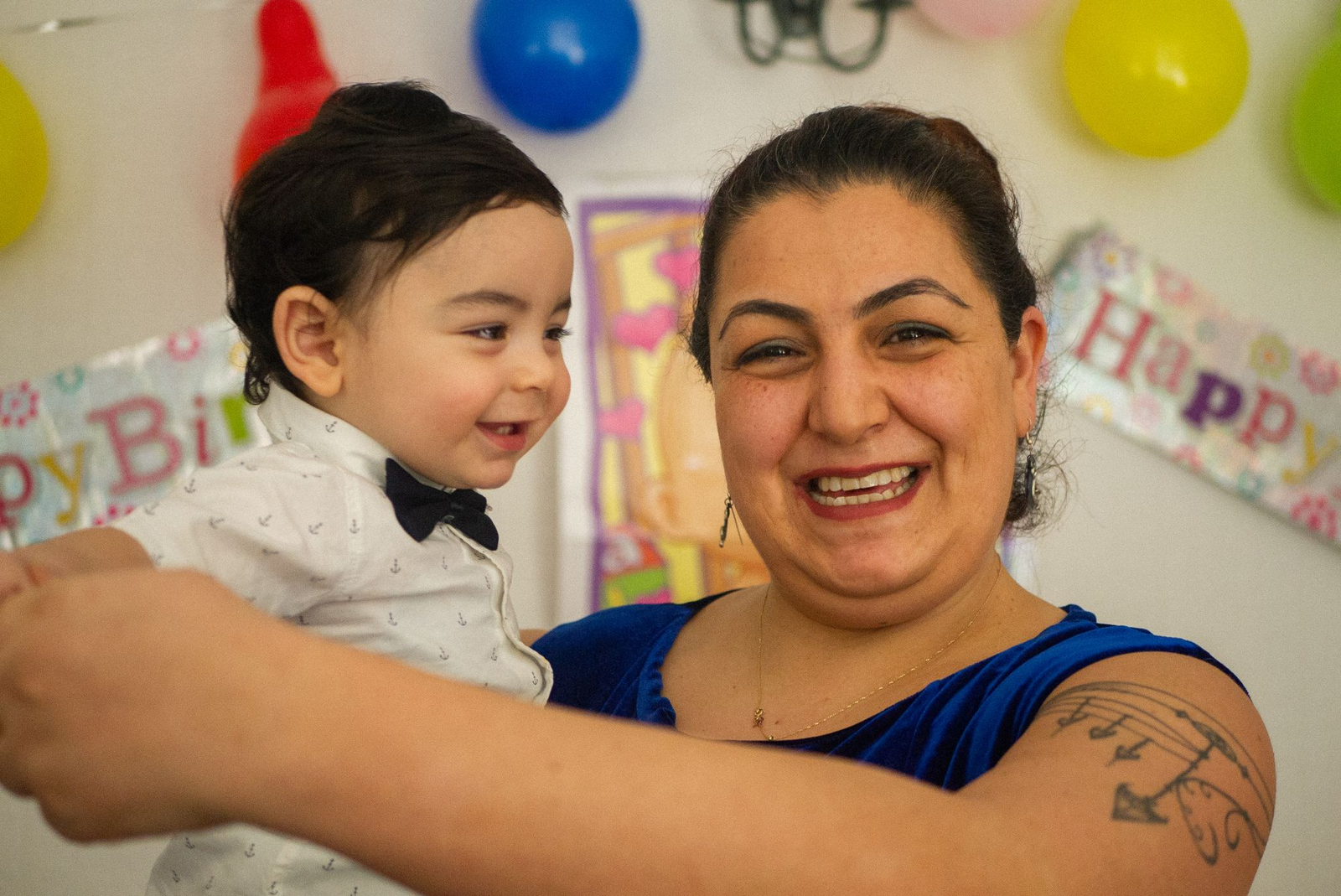
What does womanhood mean to you?
Womanhood comes from within; a given gift for you to embrace. The time of becoming a woman begins when your childish thoughts and foolish actions are placed behind you. You, as a woman, step forward in time towards your given calling. Failing at times, getting up, and learning from your mistakes.
The definition of woman is someone who embraces their identity and calling in life. One who can be strong, yet gracefully weak. A beautiful combination of mystery and femininity.
What does motherhood mean to you?
Growing up in Turkey, social and economic factors affected my perceptions of womanhood and motherhood. It was much more important to be a woman than to be a mother. I was born as a girl, and I’ve grown, studied, and strived to become a really successful woman through what I wanted to do in my life personally or in my career. However, I had a maternal feeling inside me too! That took me by surprise.
Motherhood is a great journey where you have lots of surprises. It’s an adventure which has ups and downs, where you will find yourself doing silly things without any hesitation… it is pure bliss! It is having a reason to look forward to tomorrow. Motherhood is the ability to feel your heart beat along with every little person you raise, whether or not you are of the same blood. It is tears and smiles at the same time.
Do you think your heritage/culture has a certain perception of what motherhood means?
Generally speaking, Turkish culture is family-centric and women have a big role in this. But, I don’t think there is a typical stereotype of a Turkish woman in Turkey. Her background, family, where she was born and where she lives all define who she becomes.
As a woman who grew up in Turkey and carried on her life in United Kingdom, I found out that women have so many cultural rules to live by, wherever you are in the world. I have found that the expectations are to be a great wife, and to be a caring and patient mother to your kids and husband.
Ailsa
My name is Ailsa Yexley. I’m 30 years old. I identify as human and a British and African woman of colour, reflecting my racial and cultural heritage and also my citizenship.
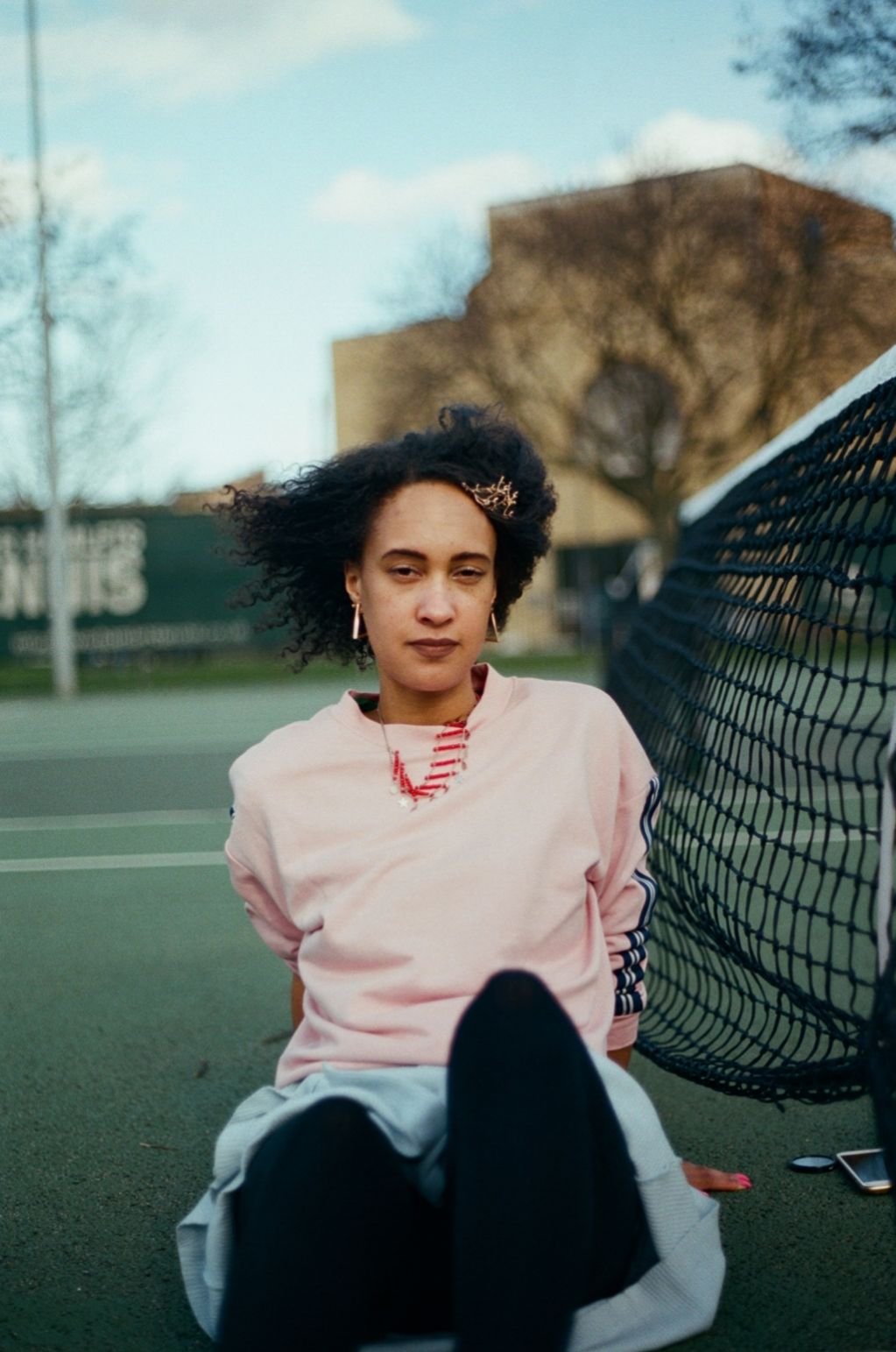

What does womanhood mean to you?
Womanhood is something which I believe exists strongly within me: in my head and in my heart. Womanhood is living in a multi-dimensional emotional world. Emotions are always in flux and, for me, often quite heightened as I live with a recently diagnosed mental health disorder.
Once you have an awareness of your emotions, you can look at your life objectively: study what is already written, put in the work, change where necessary and then you can level up in life. I claimed my womanhood when I worked through my past, unpacked my emotions and restructured how I make my future. I value the women who make up my support network as earth angels and sisters. In the end, life is lived through your unique perception – but really, it is all about connecting and unifying.
What does motherhood mean to you?
Subscribe to shado's weekly newsletter
Exclusive event news, job and creative opportunities, first access to tickets and – just in case you missed them – our picks of the week, from inside shado and out.

For me, the main goal of motherhood is to maintain a warm and positive energy that my son and future children can connect with and comfort in. A healing sanctuary which he can rely on. Becoming more heart-centred has been a big part of my motherhood journey. I think people love best when they give love simply to give it.
How do you think motherhood integrates into womanhood?
Motherhood gave me a new lashing of intuition on top of what I already had as a woman, and I have grown exponentially since becoming a mother. It allowed me to form real and solid bonds with women I already had in my life, but on a much deeper level. I have learnt that, ultimately, motherhood is an exercise in acceptance. Acceptance of yourself and your child as they are, in all their glory and at their worst.
Do you think your heritage/culture has a certain perception of what motherhood means?
My African grandma was not only a mother to her birth children but also to the children of extended family members who lived with them for many years. There were very strict gender roles for my mum growing up. But my African grandma proved to me by raising my mum, that strictness in raising children is not always simply oppressive – it can actually help to realise goals, and as a young woman of colour it can make all the difference.
I grew up knowing that, from the race side, I had to prepare to work twice as hard.
Growing up British, I think the perception of motherhood was a little hijacked from the validity of also being a person in my own right. My experiences and all the dynamic offerings of London in my youth eradicated that sense of just keeping up appearances. By giving my son love and worldly experiences, I’m trying to show him that life’s purpose is to help and guide others whilst you follow your own joy too. That is where balance comes in.
My African and British culture definitely values the status quo family unit, but I am mothering now as a single mum, working in the music industry and freelancing as an illustrator and writer. Some might label that on the verge of unstable – but it is a true reflection of my life and values.
Dawn
My name is Dawn, I’m 55 and I’m Black British. My mum is from Barbados, Dad from Jamaica.
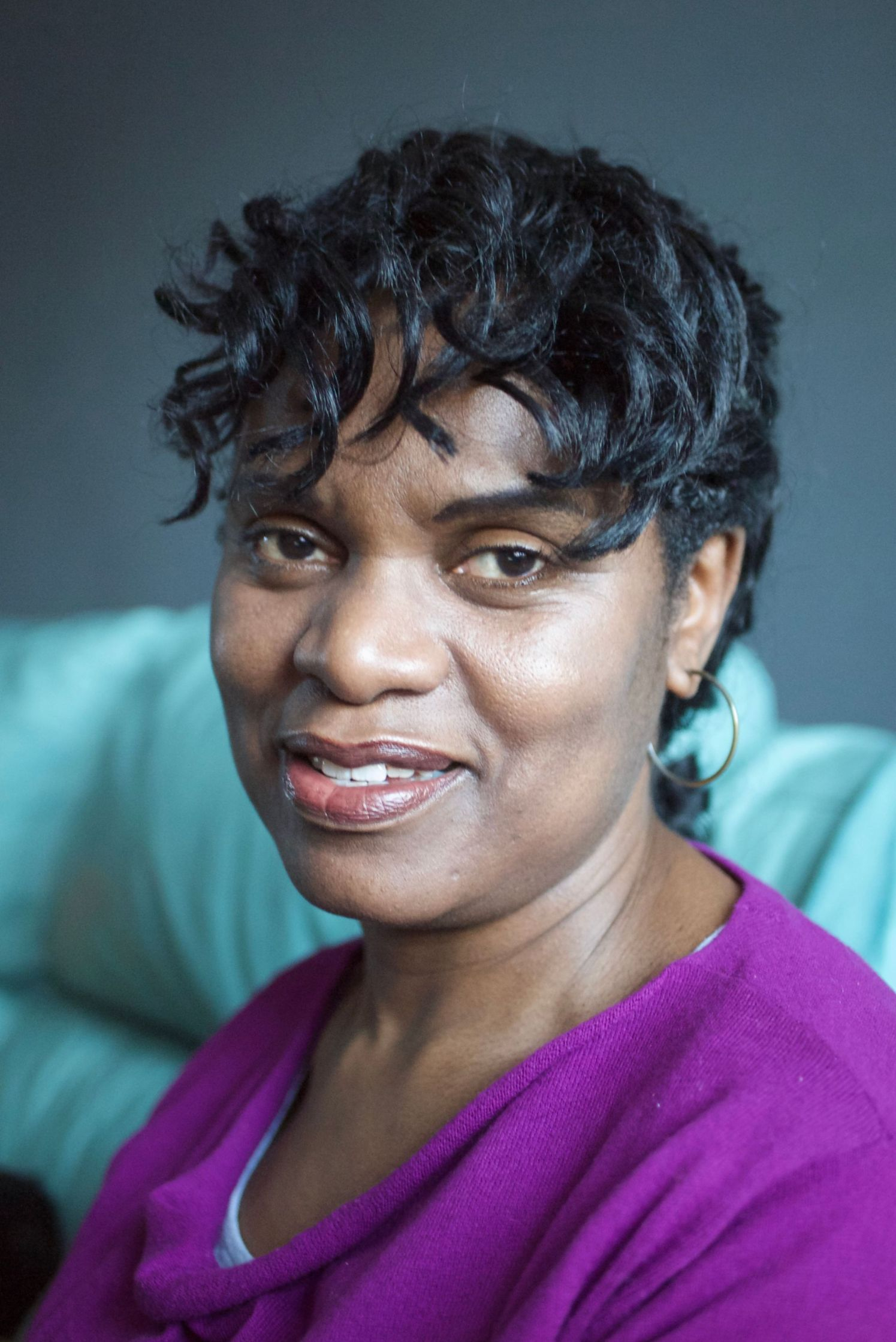
What does womanhood mean to you?
Womanhood is a very broad term. It is belonging to a group where everyone understands what it feels like to be a woman. There is a sense of loyalty, kindness and empathy you feel towards fellow women.
My perception of being a woman/mum growing up was a scary prospect. This is because a woman was seen to have many responsibilities such as cooking, cleaning, looking after children, looking after your husband or partner, basically a lot of hard work and not much fun.”
What does motherhood mean to you?
Motherhood means that your children come first, you have to be selfless and dedicate yourself yourself to them whatever the sacrifices. It means loving your children unconditionally, showing them guidance, discipline and also having the strength to let them be themselves. There is no reward for being a mother apart from the love returned by your offspring.
Do you think your heritage/ culture has a certain perception of what motherhood means?
Growing up in a Caribbean household definitely had certain perceptions of what motherhood meant. For example, as a mother you would be expected to stay at home and look after the children, cook, clean, changing nappies etc. Even if you worked, your role remained the same. I was lucky as my dad spoilt me so when my mum used to call me to watch her cooking, Dad would jump to my aid and take care of the kitchen. He expected more from me than cooking and cleaning. But it was still a different experience for my brothers – for example leaving their dishes in the living room without any expectation to wash them up.
Sevgi
My name is Sevgi. I am 39 years old and Turkish
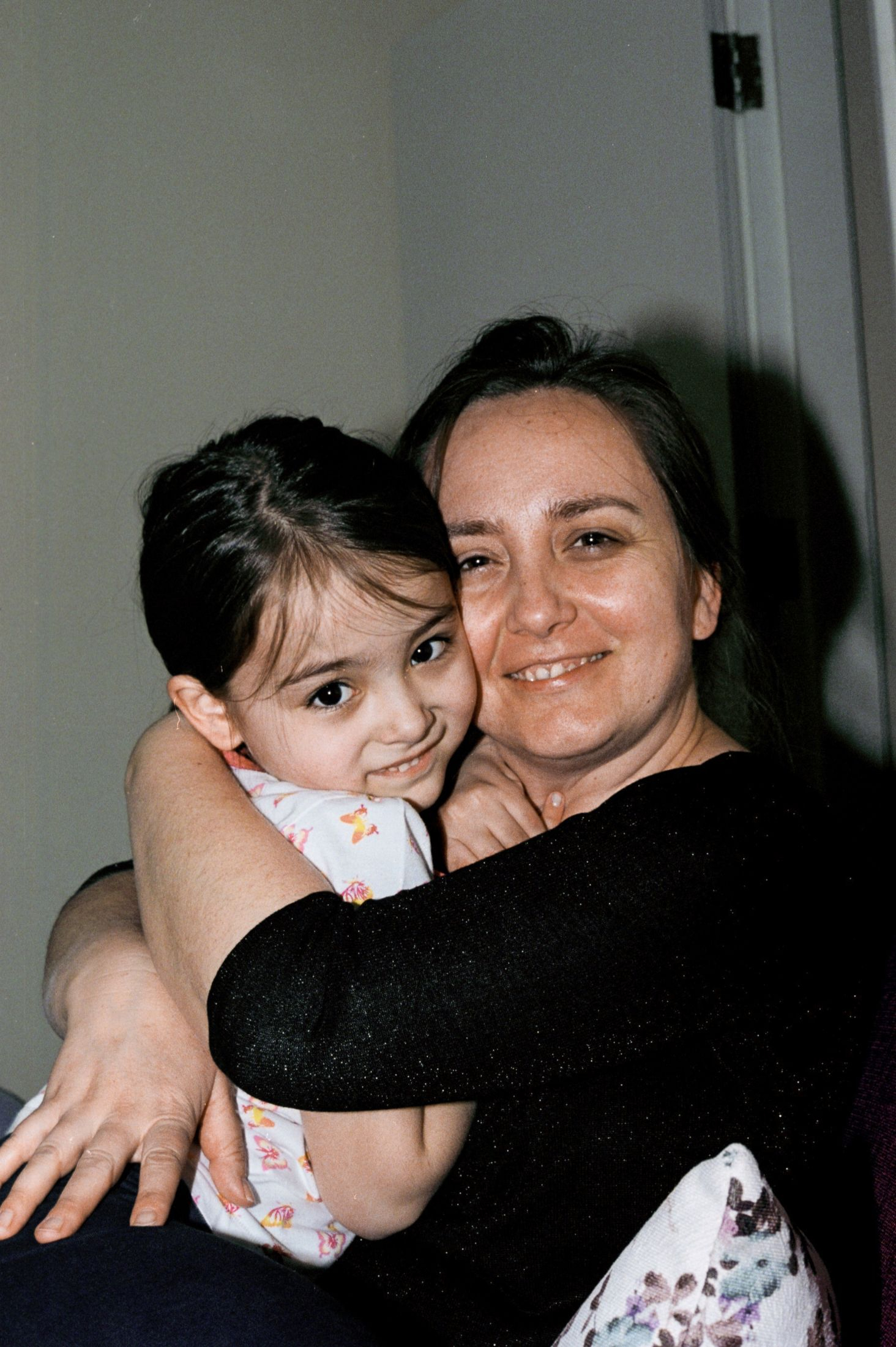
What does womanhood mean to you?
To me, womanhood means being responsible for the whole house including the children.
If I’m honest, I have not really experienced anything as such that has made me feel glad to be a woman. On many occasions I have actually wished to be a man. A woman often has too many and too much responsibility.
Being a woman outside of the home is also difficult, as you are always considered separate from men. Women cannot wear what they want to wear at work and if they choose to do so then they will always receive a reaction. If you’re dressed too conservatively, you generate a reaction. If you dress too provocatively, you generate a reaction.
I thought coming to England would make it easier as a woman, but I experienced the same as I did in Turkey.
What does motherhood mean to you?
When I think of motherhood and my mother it felt like she was just covering our basic needs and in principle I always promised myself that I would be a better, more modern mother for my children; that I would become friends with my children and always be a friend to them. In reality, that’s not the case it’s a very hard job putting you’re ‘ideals’ intro practice. Influences from your culture and upbringing ultimately effect the way you mother. But you give all your love and everything that you have to your child because the child expects.
Do you think your heritage/ culture has a certain perception of what motherhood means?
Yes, definitely. There’s definitely certain expectations from Turkish culture, expectations which don’t exist in England. Women have more time for themselves in English culture. Turkish mums do all the work in the household, they do not expect their husbands to do chores around the house. Work inside the home is the responsibility of the mother – work outside the home is expected to be done by the father or husband. In England, they tend to share the work both in and out of the house.
Meikle
My name is Meikle McIntosh. I am 78 and was born in Jamaica.
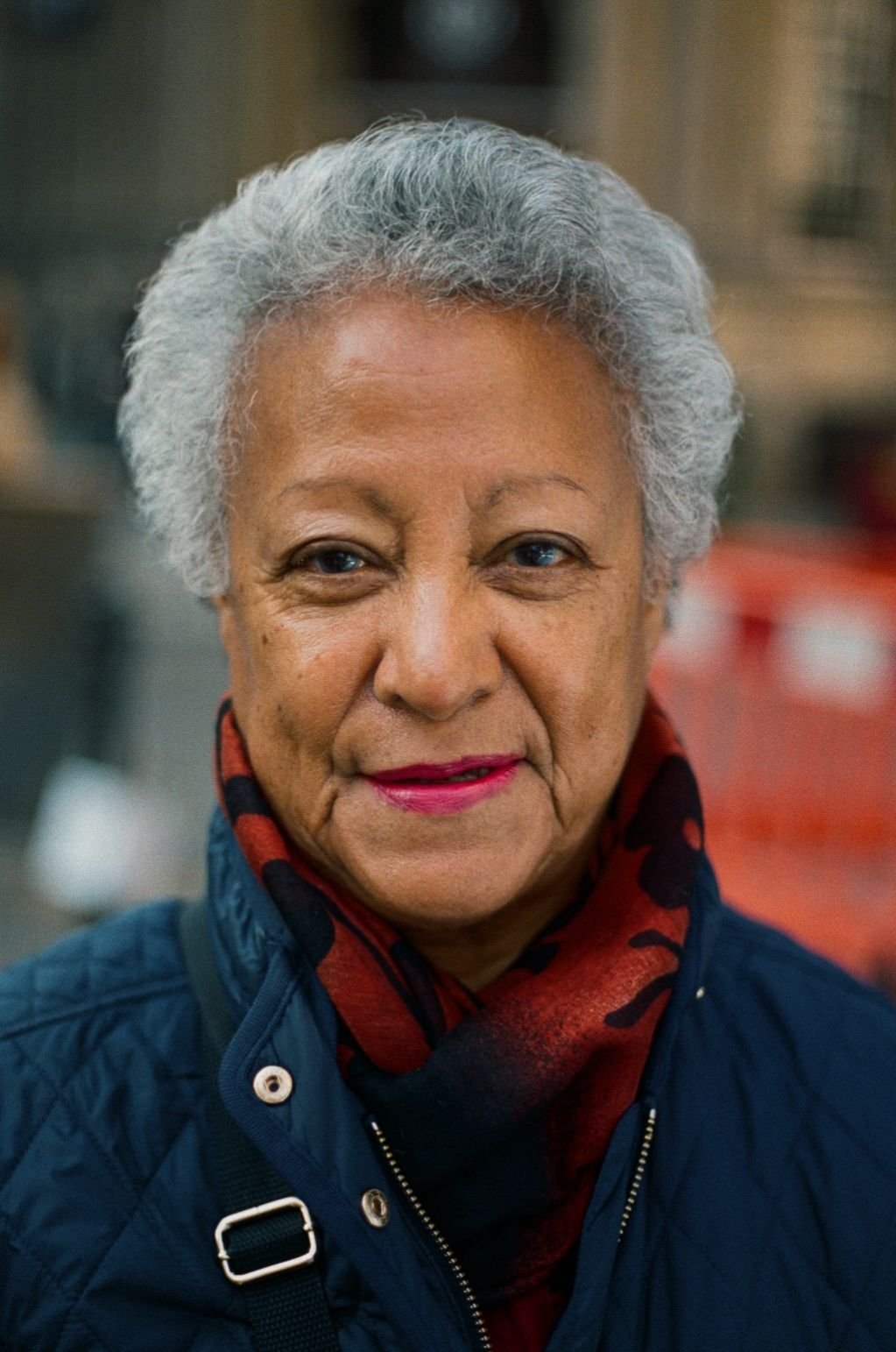
What does womanhood mean to you?
Biologically, womanhood means the development of the female body, which changes from girl into woman. It means adulthood, maturities and understanding the responsibilities that come with being a woman.
Growing up in Jamaica my generation was not so fortunate, my parents were very strict. In their household you only become a woman when you left their home – until then you’re seen as a girl. We weren’t taught about periods, or sex. I assumed I would have more freedom as a woman once I arrived to England.
I left school at 15yrs, because I was due to join my parents, whom had migrated from Jamaica to England the previous year. There was some delay in my departure date, and I was not allowed back to school to take the exams which I should have taken at 16. I was very disappointed about that, and even more so when I arrived in England, because I was too old to go to school. I had to find employment. Having just arrived from the West Indies, the only jobs available to us was manual work.
What does motherhood mean to you?
Taking responsibilities of the children I gave birth to, giving unconditional love. It means being ready to fight for them, and give my everything to them whatever the circumstances. Teaching them to be strong and to have confidence in themselves, which should prepare them, to deal with life’s challenges. It is important to encourage a strong and healthy mind.
Do you think your heritage/ culture has a certain perception of what motherhood means?
My parents were Jamaican, so my heritage and culture comes from them. Some women from my culture/ heritage don’t share the same values, because they’re happy to have children with different partners. I have lots of respect for my parents, because they had twelve children together. They strived to give all of us the love and support we needed to grow into strong independent individuals. They set a great example of a mutual supportive relationship. Motherhood for me means being there for your children, their whole lives.
Kris
My name is Kristina, I’m 34 and I consider myself Black African. I was born in Portugal but my parents are from Cape Verde.
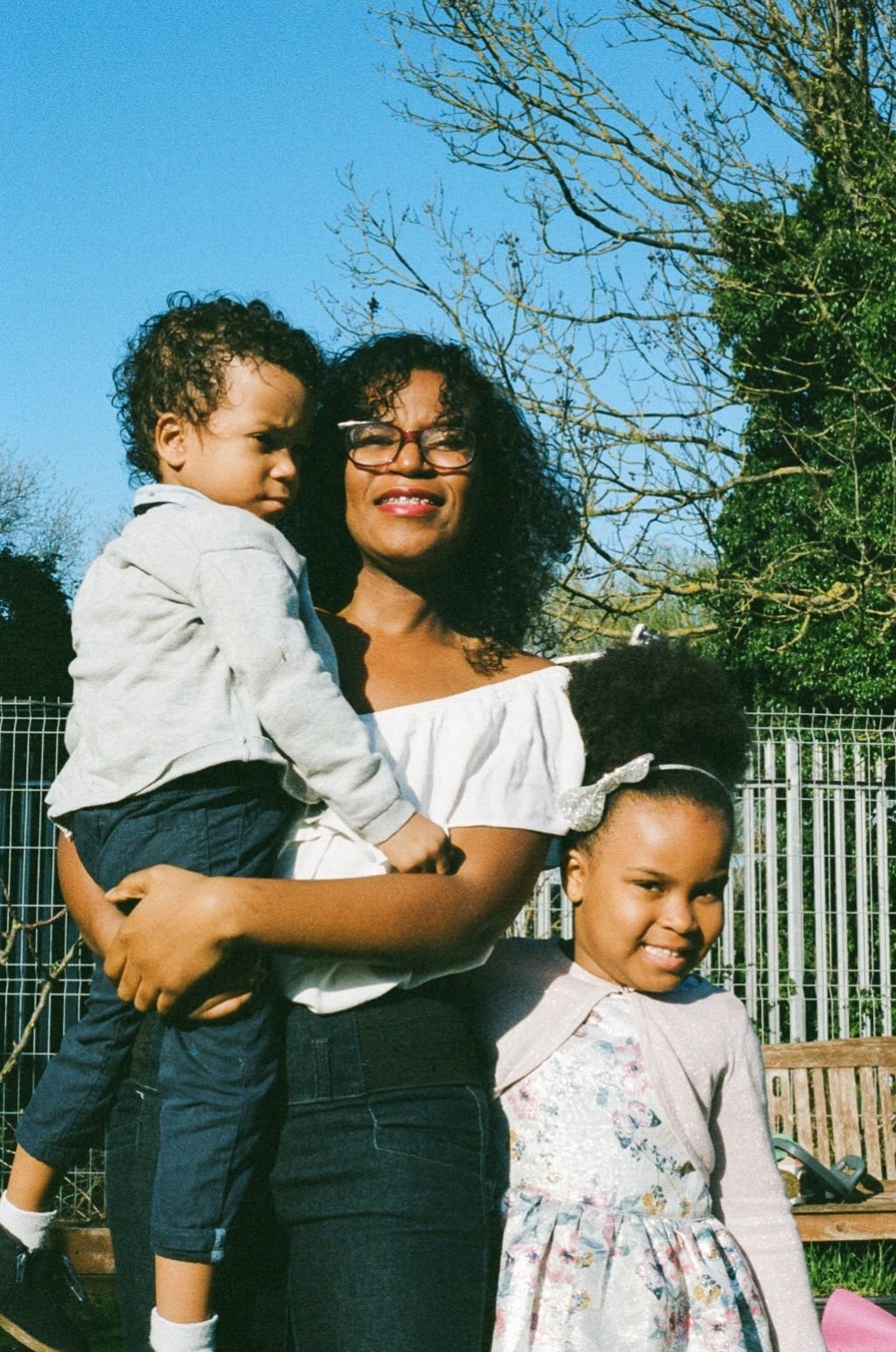
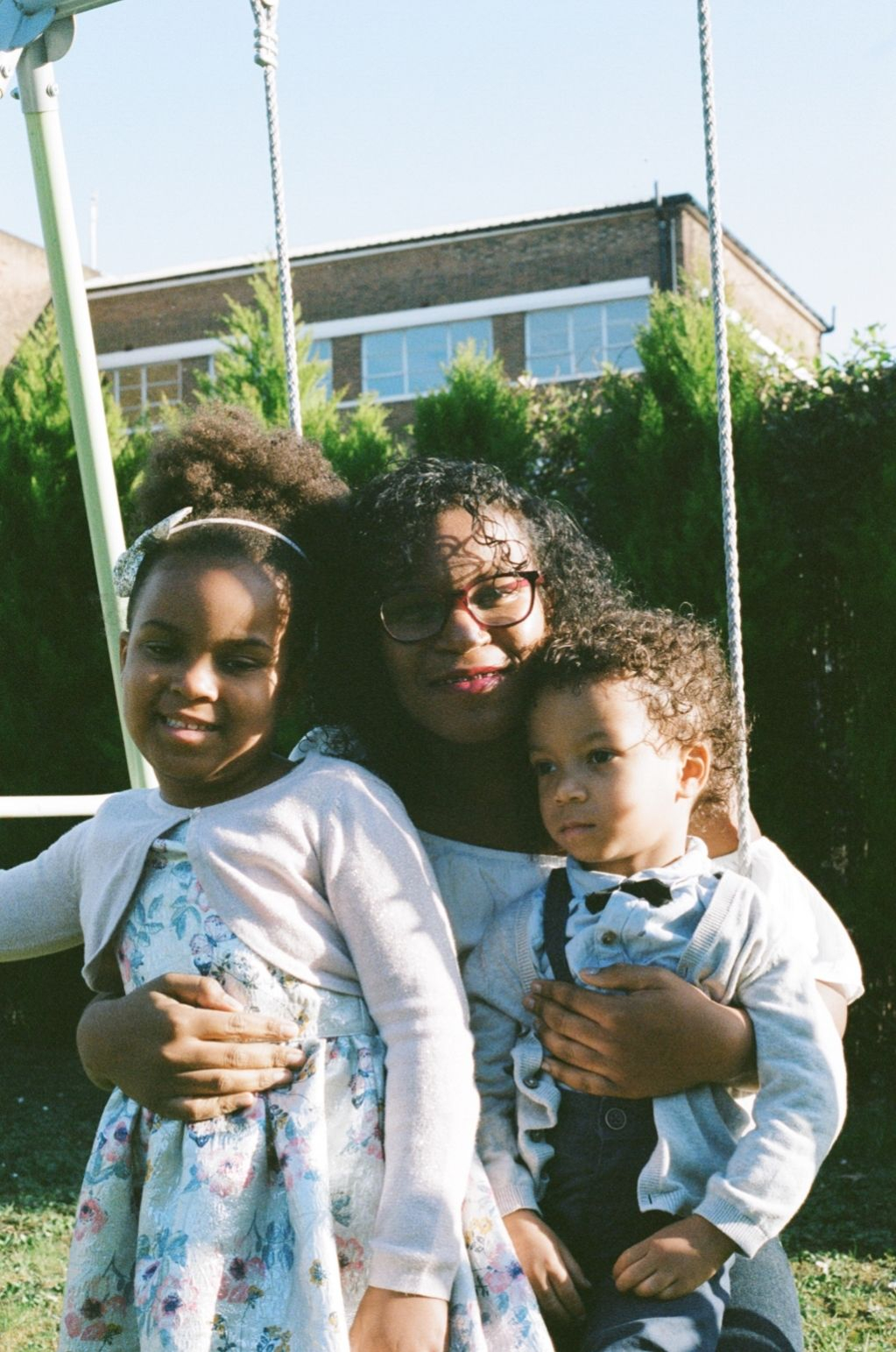
What does womanhood mean to you?
Being a woman is a huge responsibility. We have the responsibility to nurture and carry life into the world. Being a woman is also synonymous of strength and resilience. We have the responsibility to look after the household, look after the family. Historically, we have had to fight for the same equality as a man – and there’s still a lot of work to be done in that respect.
But a world without a woman would be an empty world; a world that wouldn’t make any sense. We used to say in Portugal, behind a great man exists an even greater woman.
Growing up what was your perception of ‘being a woman’ / ‘being a Mum’?
I think the definition of being a woman has changed hugely. I grew up in an African family, where the community still sees the man as the leader. I remember when I was younger seeing my mum doing a lot of work – cooking, cleaning, looking after us. Growing up in Portugal was difficult because my Mum was the only Black woman in the village; she had the responsibility of being a woman, being a mother, but also being accepted.
Seeing my mum doing so much was actually upsetting. I questioned for a long time whether I should conform and accept this as fact, or whether I should do something differently. My Dad had the easier job in my eyes; he would go to work but my Mum did a lot more.
But today things are much different. My Dad still goes to work, but he also cleans, cooks and looks after the house the same way.
In my household, my partner helps me a lot with the children and everything in the house. There are men who still don’t help but my partner does! Last year when we travelled back to Cape Verde, everyone was shocked when they saw him changing my son’s nappy. Everyone was asking why?
What does motherhood mean to you?
Motherhood means the world for me. It’s the most incredible experience that I have ever had. I was never a person who saw myself as becoming a mother. I was always busy, studying – I never truly considered being a mother. When I got to 27, I changed completely.
Motherhood means hope, transferring the best skills to create the best humans I can. I’m growing with my kids; everyday they teach me something new.
I’m a student working mum. My children are the source of all my strength. Every time I question my ability, I think of them and it all becomes possible.
Do you think your heritage/ culture has a perception of what motherhood means?
Definitely. From around 27 my parents began asking when I was planning on having kids. In Africa, it is expected of a woman to have children. It is difficult for African culture to understand being in a relationship or having a partner without having kids. Children are integral part of a woman’s life. In Cape Verde, a child is responsible for looking after their parents when they’re older. If you don’t have kids, you’re asked who’s going to look after you? Who’s going to carry on your bloodline?
See more of Ilayda’s work on instagram

